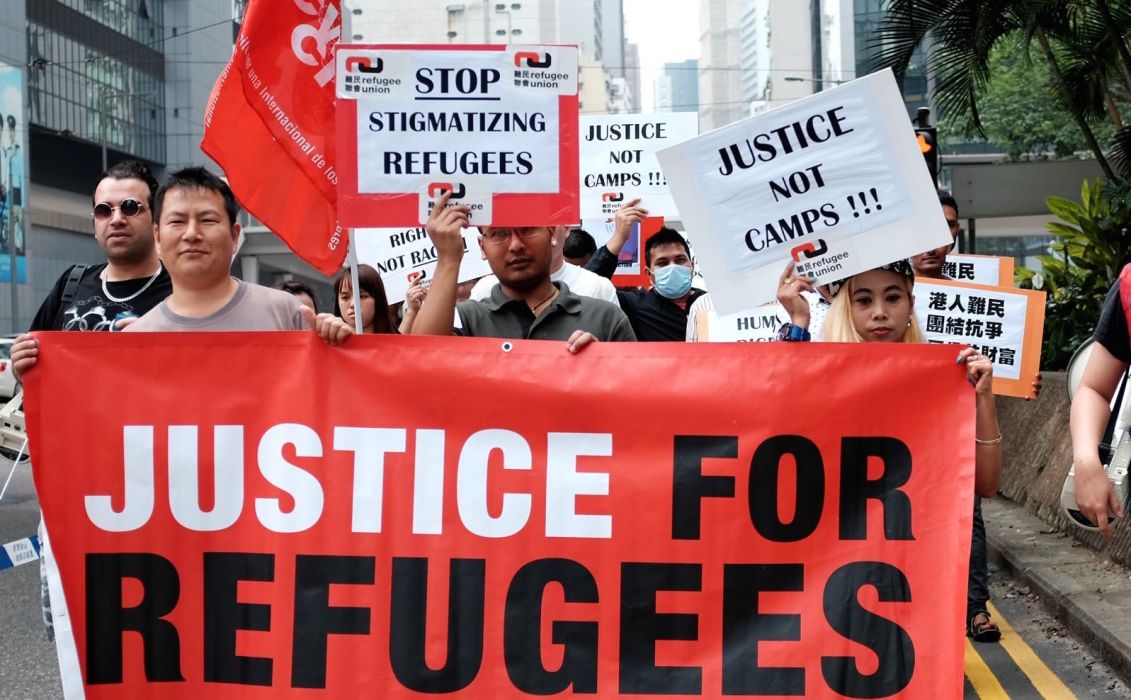Over the long weekend, refugees marched against racial discrimination, starting from Wan Chai’s Southorn Playground and ending at the Central Government Complex in Admiralty. According to the Refugee Union, which organised the march, around 250 people participated in the rally on Saturday, April 30.
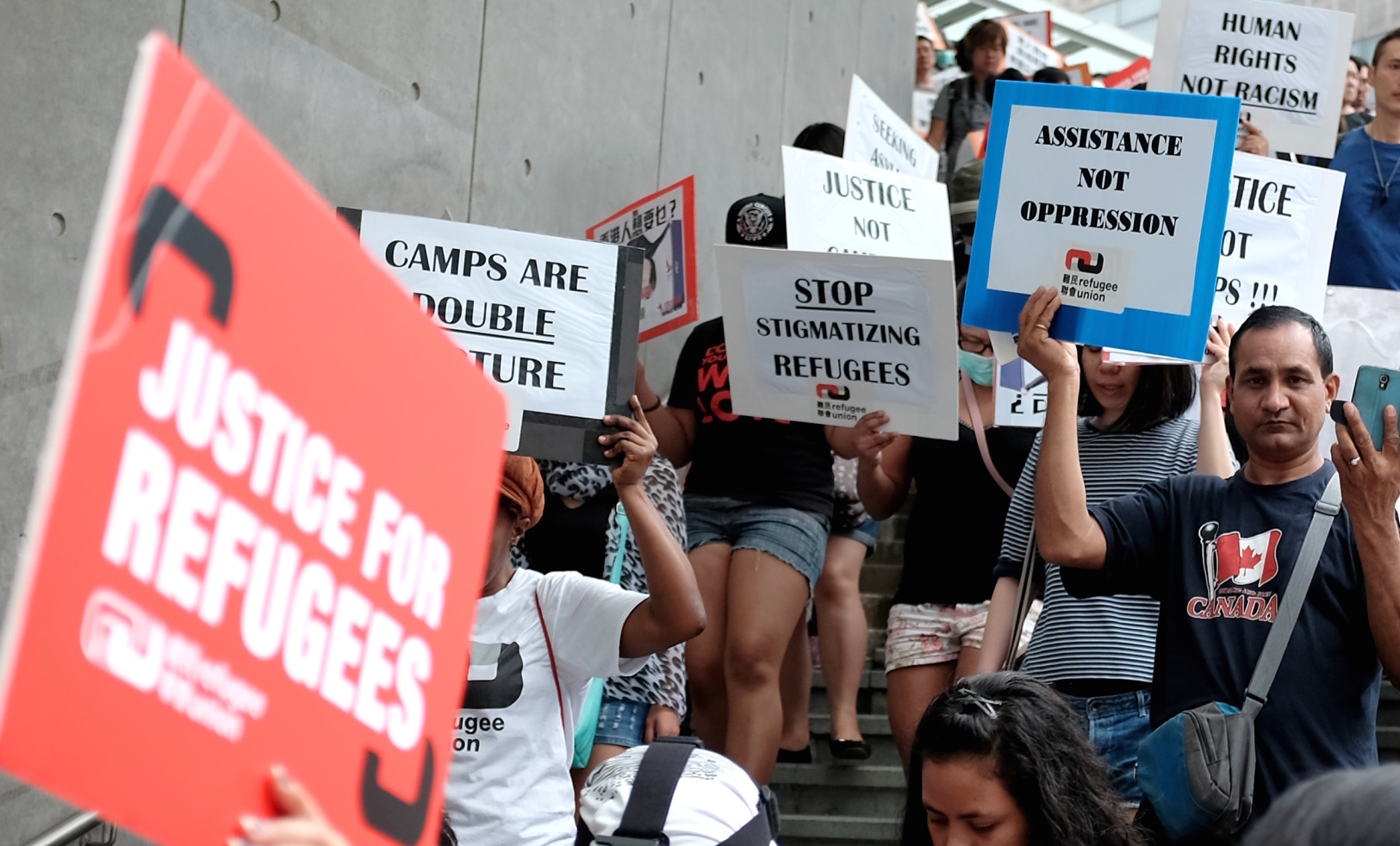
The protest march winds itself around the stairs leading to the Central Government Offices. Photo: Adrian Lo
The Refugee Union, the only refugee-led society in Hong Kong, aims to “safeguard the rights and interests of people seeking asylum”. It said in a statement that refugees are the victims of racism and other forms of discrimination, and that they are unfairly depicted as “criminals, illegal and economic migrants, or abusers of the asylum mechanism who undeservedly enjoy free benefits”.
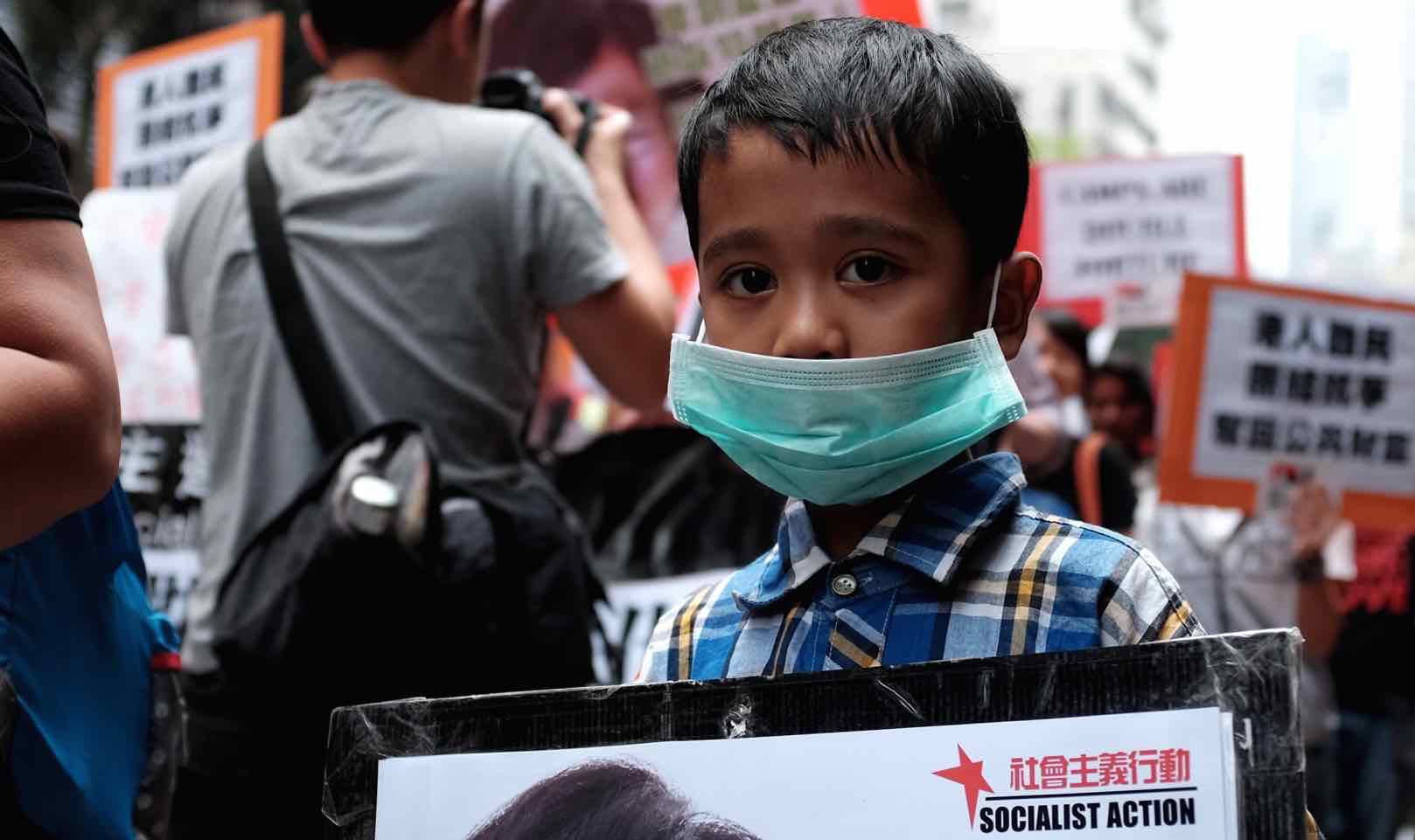
Demonstrators, young and old, turned up on the streets to promote human rights. Photo: Adrian Lo
The union blamed leading politicians – including Chief Executive CY Leung – and the media for playing a key role in spreading a “message of hate” towards asylum seekers and for making up a “refugee crisis”, denouncing their words as “smear campaigns” and “propaganda”.
In March, lawmaker Regina Ip suggested that the most effective method to deter asylum seekers from entering Hong Kong was to detain them all in a camp on an island – a method that has obviously turned out well throughout history.
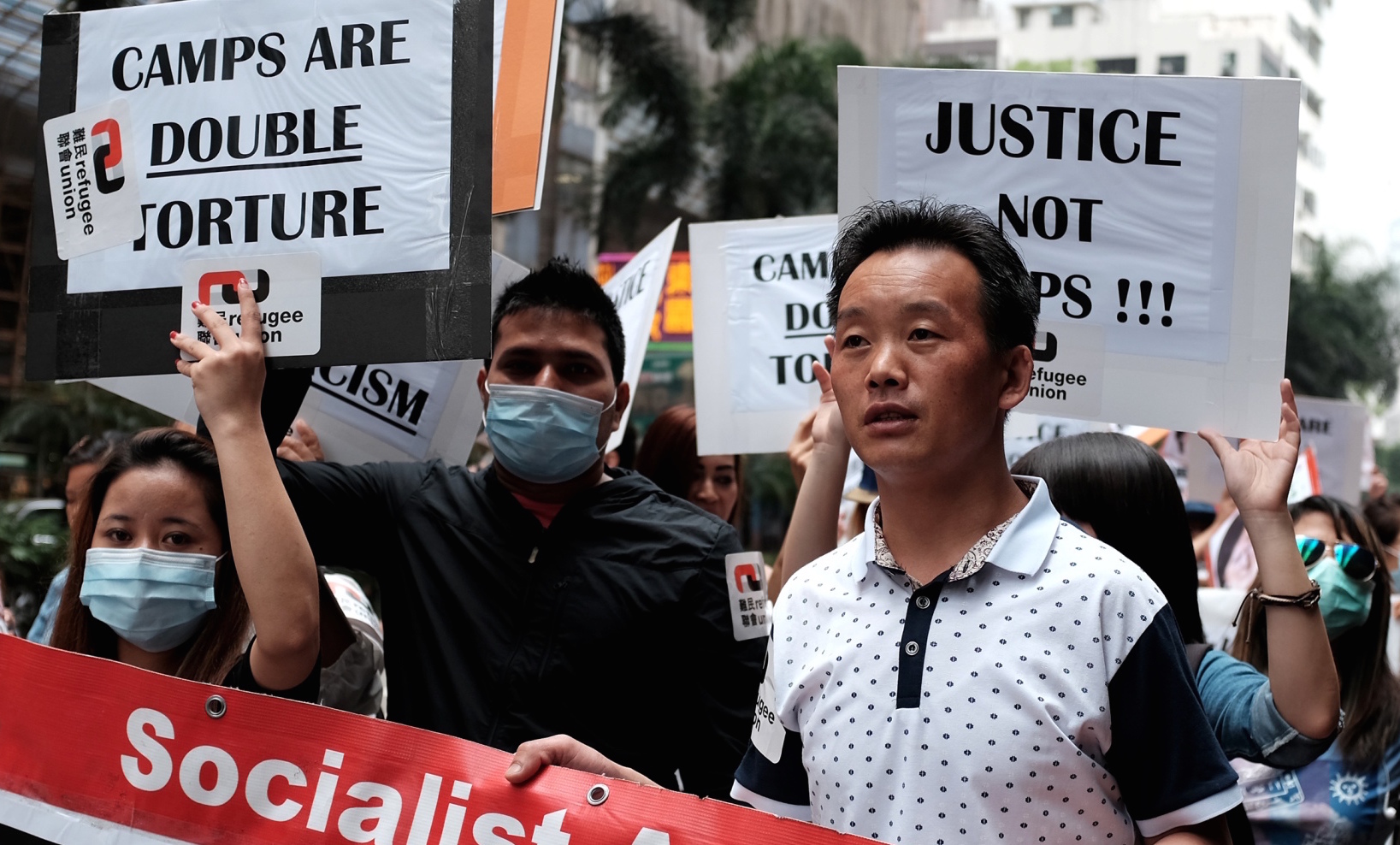
Demonstrators from diverse ethnic and religious backgrounds participated in the protest with placards. Photo: Adrian Lo
The union called upon the government “to condemn such divisive politics”, which encourage “disharmony and discrimination”.
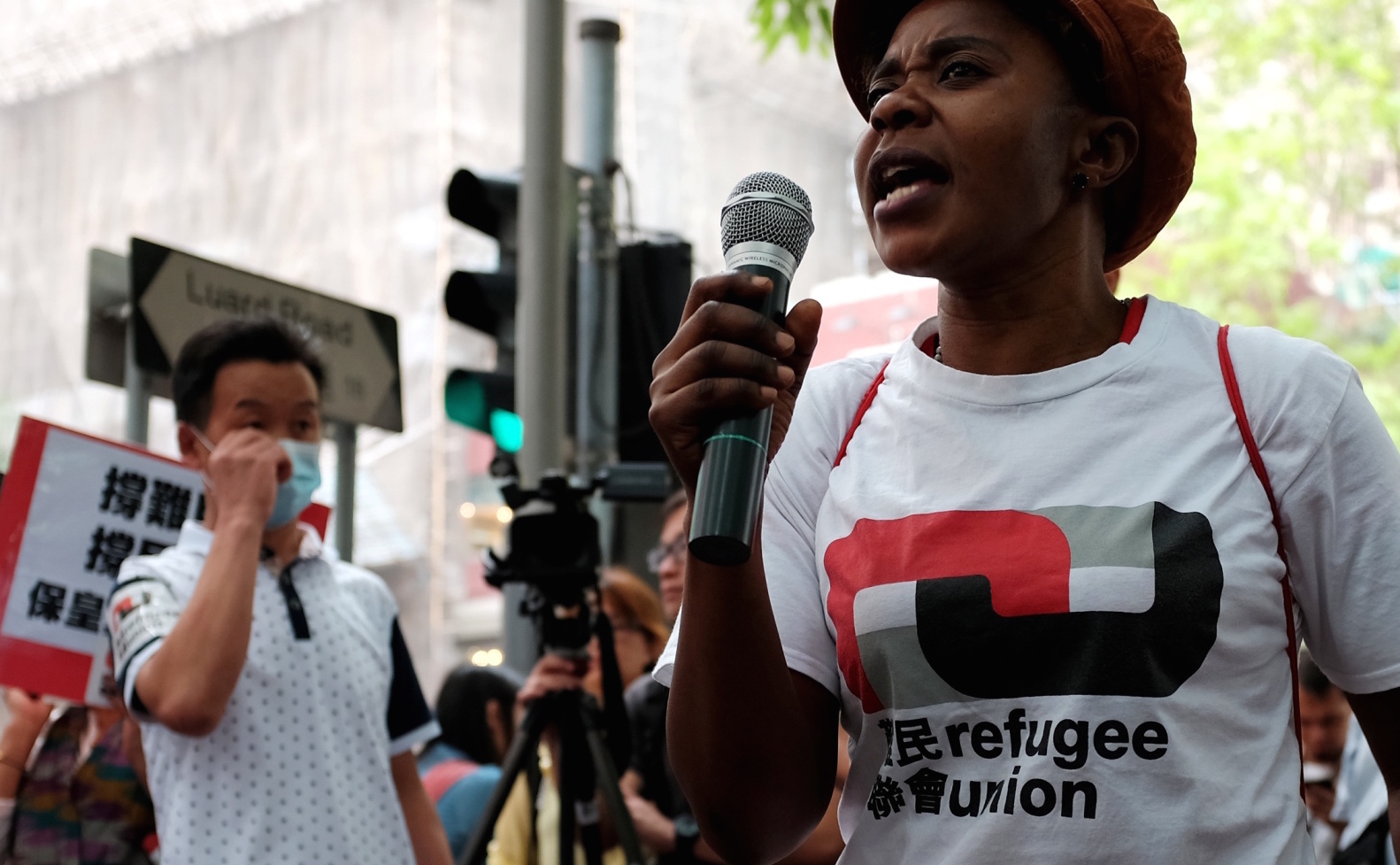
A representative of the Refugee Union gives the opening speech. Photo: Adrian Lo
Slogans like “Justice not camps!” and “Human rights not racism” were displayed, whilst others burnt copies of local newspaper Oriental Daily, which is viewed as being anti-refugee.
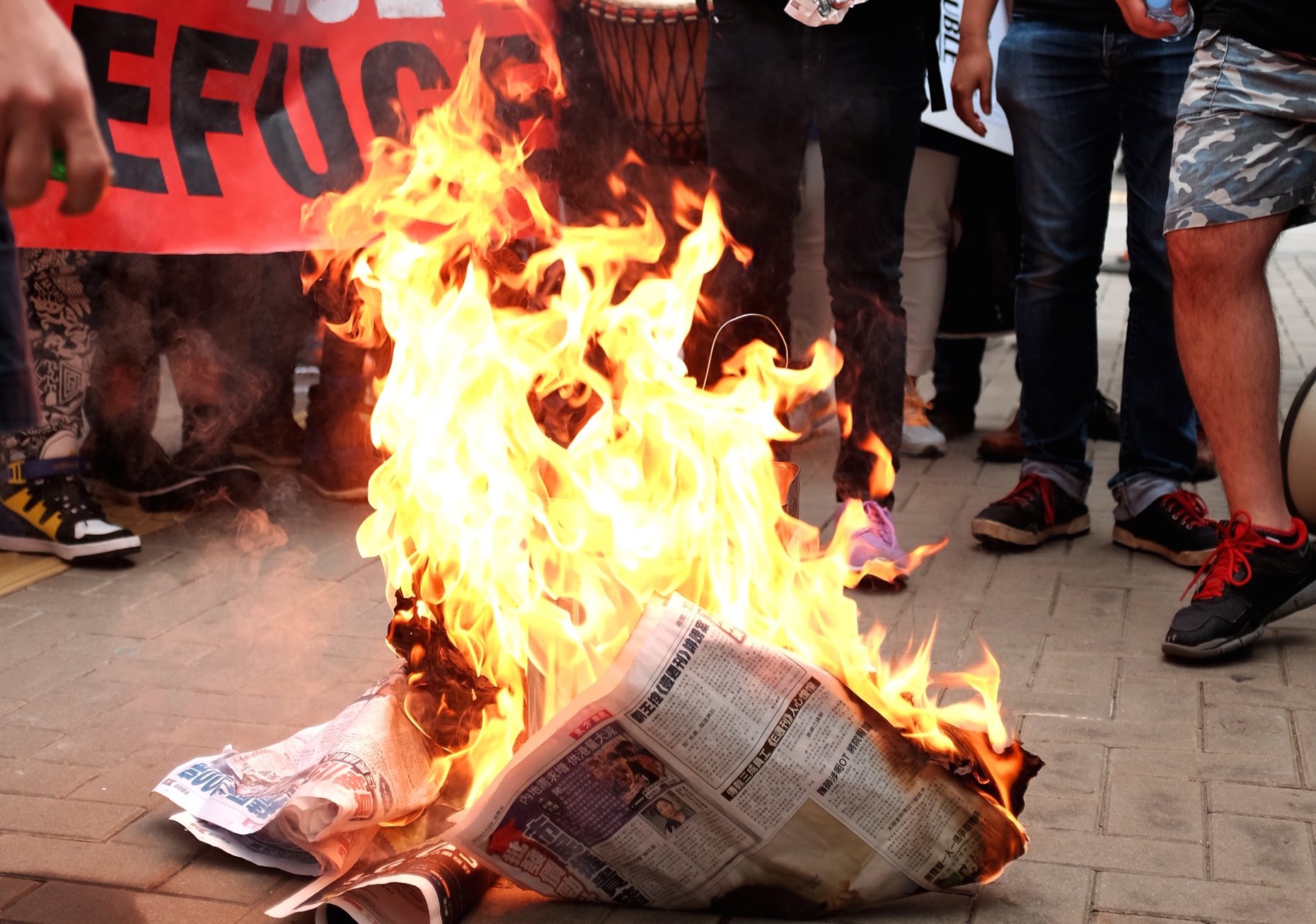
Demonstrators burn copies of Oriental Daily, a newspaper viewed as anti-refugee. Photo: Adrian Lo
Related stories:
From Hell to Purgatory: Refugees in Hong Kong live in limbo under the ‘no work’ law
